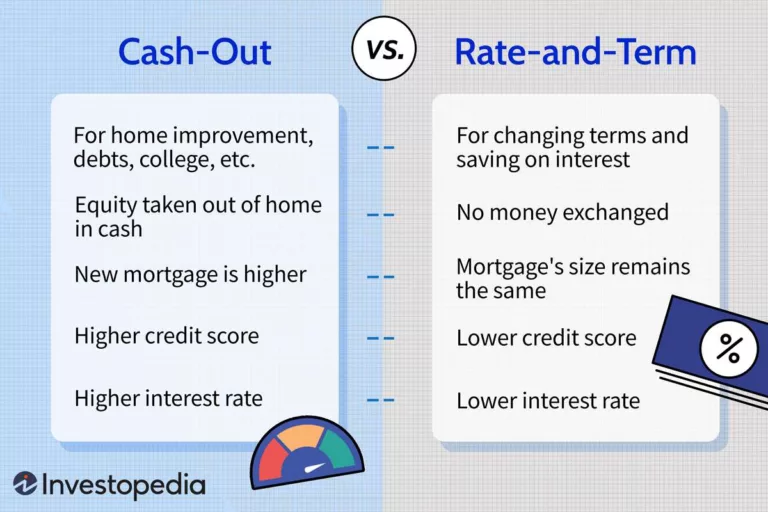Can I Split My Land If I Have a Mortgage? Discover the Possibilities!
Yes, you can split your land if you have a mortgage. However, there are certain factors to consider before doing so.
Splitting your land can have implications on your mortgage agreement, as lenders typically require the entire property as collateral. Therefore, you may need to obtain the consent of your mortgage lender in order to split the land. Additionally, you may need to consult with a professional, such as a real estate attorney, to ensure you comply with all legal requirements and understand the potential impact on your mortgage terms.
It is crucial to have a clear understanding of your mortgage agreement and seek proper guidance before proceeding with dividing your land.
:max_bytes(150000):strip_icc()/TenancyinCommon_INV-747181d302d84b9f9023f5f22031e840.jpg)
Credit: www.investopedia.com
Understanding Property Ownership
Different Types Of Property Ownership
Before diving into the concept of land splitting, it’s crucial to comprehend the various types of property ownership that exist. By knowing the differences between these ownership options, you can make informed decisions that align with your goals and financial situation.
1. Sole ownership: This occurs when an individual or entity holds the land title in their name alone. As the sole owner, you have full control over the property and can make decisions regarding its use and potential split.
2. Joint tenancy: When two or more individuals co-own a property, they are considered joint tenants. In this scenario, all parties have an equal share and rights to the land. Should one joint tenant pass away, their share automatically transfers to the surviving owners.
3. Tenancy in common: Unlike joint tenancy, tenancy in common allows co-owners to have different ownership percentages. Each owner has the freedom to sell, mortgage, or will their portion of the property independently.
Impact Of Ownership On Land Splitting
Now that you have a general understanding of different types of property ownership, it’s time to explore how these ownership structures influence the possibility of splitting your land. The impact largely depends on the specific ownership arrangement you have in place.
1. Sole ownership: If you are the sole owner of the property, you have the authority to pursue land splitting as long as it complies with local zoning regulations and any mortgage agreements.
2. Joint tenancy: In a joint tenancy situation, all owners must agree to the land split. If consensus is reached, the property can be divided accordingly. However, it’s important to consider the impact on mortgages and any legal implications.
3. Tenancy in common: As tenants in common possess distinct ownership percentages, land splitting can be a bit more complex. Detailed agreements and legal measures may be necessary to ensure fair division and address potential financing or mortgage complications.
In summary, understanding property ownership is a crucial factor in determining whether you can split your land while having a mortgage. Each ownership type brings its own set of rules and considerations, and consulting with legal and financial experts is advisable for a smoother land splitting process.
Factors To Consider
Before making any decisions about splitting your land when you have a mortgage, there are several important factors to take into consideration. Understanding these factors will help you navigate through the process and make an informed decision that aligns with your financial goals and local regulations.
Current Mortgage Terms
The first factor you should consider is your current mortgage terms. Review the terms and conditions of your mortgage agreement to determine if there are any restrictions or limitations regarding splitting your land. Some mortgage lenders might have specific policies in place that prohibit or place conditions on dividing the property while the mortgage is still active.
If your mortgage terms do not explicitly address splitting the land, it is still recommended to reach out to your lender and inquire about their policies. They can provide clarity on any potential implications or requirements you need to be aware of before moving forward.
Local Zoning Regulations
Local zoning regulations play a crucial role when considering splitting your land. These regulations can vary from one jurisdiction to another, so it is essential to research and understand the specific rules in your area.
To determine the feasibility of dividing your land, you must investigate the zoning classification of your property. Some zones may have minimum lot size requirements, setback restrictions, or other regulations that could impact your plan to split the land. Consulting with local planning departments or seeking legal advice can help you navigate these zoning requirements effectively.
Financial Implications
The financial implications of splitting your land with an existing mortgage are another critical factor to consider. Dividing the land could result in changes to your property value, property taxes, and insurance costs.
When you split your land, each newly created parcel may need to be appraised individually. This assessment can affect your overall property value and potentially impact your mortgage terms. Additionally, dividing the land could alter your property tax obligations and affect any insurance coverage you currently have in place.
It is crucial to consult with professionals such as real estate agents, appraisers, tax advisors, and insurance agents to understand the financial implications thoroughly. They can provide valuable insights and guide you through the necessary steps to ensure you make informed decisions that align with your financial situation.
Options For Splitting Land
If you have a mortgage, you may be wondering if you can split your land. Discover the options available to you for dividing your property while still having a mortgage in place.
If you own a piece of land with a mortgage and are considering splitting it, you may be wondering about your options. It is important to understand the various possibilities when it comes to dividing a property with an existing mortgage. In this article, we will explore two common methods to split land while keeping your mortgage intact: subdividing the property and creating easements or rights of way.
Subdividing The Property
Subdividing the property is a process that involves dividing a larger piece of land into smaller parcels. This can be an ideal option if you want to sell or build on a portion of your land while keeping the rest for your own use. However, it is crucial to review your mortgage agreement and consult with your lender before proceeding with a subdivision. Not all mortgages allow for the subdivision of the property, and you may need to obtain approval from your lender before moving forward. Additionally, there may be local zoning and development regulations that need to be followed.
Creating Easements Or Rights Of Way
Another option for splitting your land while maintaining your mortgage is to create easements or rights of way. An easement is a legal right that allows someone else to use a portion of your land for a specific purpose, such as accessing their own property. This can be a beneficial solution if you want to give someone else access to a portion of your land without dividing it physically. Similarly, a right of way is a legal right that grants someone the ability to pass through your property to get to another location. This can be advantageous if you want to maintain the integrity of your land but provide access to another property.
Before creating an easement or right of way, it is crucial to consult with a lawyer to ensure all legal requirements are met. This includes drafting a formal agreement that outlines the terms of the easement or right of way and specifies any conditions or restrictions. The agreement should also address any potential impacts on your mortgage and involve your lender if necessary to avoid any conflicts or issues in the future.

Credit: www.expatincroatia.com
Guidelines And Restrictions
When it comes to splitting your land while having a mortgage, there are several guidelines and restrictions that you need to be aware of. Understanding these guidelines is crucial to ensure a smooth process and avoid any legal complications in the future. In this section, we will discuss two important aspects to consider: consulting with lenders and legal professionals, and obtaining permits and approvals.
Consulting With Lenders And Legal Professionals
Before you proceed with dividing your land, it is essential to consult with your lenders and legal professionals. Your mortgage lender needs to be informed about any potential changes to the property. By discussing your plans with them, you can understand the impact of splitting your land on your mortgage and any further financing options that may be necessary.
Moreover, seeking advice from legal professionals will help you navigate the legal complexities involved in splitting your land. They can provide guidance on the specific regulations and restrictions imposed by your local jurisdiction. Legal professionals can also assist you in drafting necessary legal documents such as land division agreements or easements, ensuring your interests are protected throughout the process.
Obtaining Permits And Approvals
Splitting your land typically requires obtaining permits and approvals from the relevant authorities. These permits can vary depending on your location and the size of the land division. It is essential to reach out to your local planning or zoning department to understand the specific requirements and procedures to follow.
Typically, you will need to submit a land division application, which includes details about the proposed division plan, property boundaries, and any environmental impact assessments. It is crucial to provide accurate and comprehensive information to avoid any delays or rejections during the approval process.
Additionally, you may also need to comply with specific regulations, such as setback requirements, utility access, or environmental preservation. Ensuring that you have all the necessary permits and approvals will give you the confidence to move forward with your land division project and avoid potential fines or legal consequences.
Summary:
When considering splitting your land with an existing mortgage, it is essential to adhere to specific guidelines and restrictions. Consulting with your lenders and legal professionals can help you understand the implications on your mortgage and ensure compliance with local regulations. Obtaining the necessary permits and approvals is crucial to avoid legal complications and ensure a smooth land division process.
Consequences And Benefits
If you have a mortgage, splitting your land could have consequences. It is important to consider the terms of your mortgage before proceeding. However, there can also be benefits to splitting your land, such as the potential to increase your property value or utilize the additional space for other purposes.
Make sure to consult with professionals and understand the potential implications before making any decisions.
Impact On Mortgage Payments
If you’re considering splitting your land but have a mortgage, it’s essential to understand the consequences it can have on your mortgage payments. When you split your land, it may result in adjusting the boundaries and size of your property. As a result, your lender may reevaluate the terms of your mortgage agreement. This could lead to potential changes in your monthly mortgage payments, which could be either positive or negative depending on the specific circumstances. Splitting your land might reduce your property size, which could result in a decreased market value. Consequently, your outstanding loan amount relative to your property value may increase, leading to a potential increase in your mortgage payments. On the other hand, if splitting the land leads to an increased property value, it may work in your favor by reducing your loan-to-value ratio. This could potentially result in lower mortgage payments. However, it’s important to carefully analyze the impact of the land split on your mortgage before making any decisions.Potential Increase In Property Value
One of the significant benefits of splitting your land is the potential increase in property value. When you divide your land, each separate plot can often be sold or developed individually, giving you additional options for future use. This increased flexibility can attract potential buyers or developers, ultimately leading to an appreciation in property value. Additionally, splitting your land can also bring benefits such as increased privacy, expanded options for construction or development, and more diverse usage opportunities for your property. The ability to sell or lease separate plots can provide financial opportunities that were previously unavailable with a single, unified land plot. It’s crucial to consult with a qualified real estate professional or appraiser to determine the potential increase in property value that splitting your land can offer. In summary, splitting your land can have both consequences and benefits, particularly if you have a mortgage. It’s vital to consider the impact on your mortgage payments, as changes in property size and value can lead to adjustments in monthly payments. However, splitting your land also has the potential to increase property value, offering new opportunities for development and financial gain. To make an informed decision, it’s crucial to carefully analyze the potential risks and rewards before proceeding with splitting your land.
Credit: www.facebook.com
Frequently Asked Questions On Can I Split My Land If I Have A Mortgage
What Happens With A Mortgage When You Split The Lot?
When you split a lot, the mortgage associated with it doesn’t automatically go away. You may need to refinance or adjust the mortgage to account for the divided lots. Contact your lender for guidance on how to proceed with the mortgage after splitting the lot.
Can You Split A Plot Of Land?
Yes, it is possible to split a plot of land.
Can You Add Land To An Existing Mortgage?
Yes, it is possible to add land to an existing mortgage. This can be done by refinancing the mortgage or through a land contract.
How Do You Make Money Subdividing Land?
Subdividing land can be profitable by selling smaller lots or developing properties. It involves dividing a larger parcel into smaller ones for sale or developing. This allows for a higher potential resale value or the creation of multiple properties for rental or sale.
Conclusion
To wrap it up, splitting land is indeed possible even if you have a mortgage. However, before proceeding with any division, it is crucial to consult with your mortgage lender and understand the implications it may have on your loan.
By familiarizing yourself with the process, respecting legal requirements, and seeking professional advice, you can navigate this undertaking successfully. Remember, being knowledgeable and cautious is key when dividing your land while having an existing mortgage.



